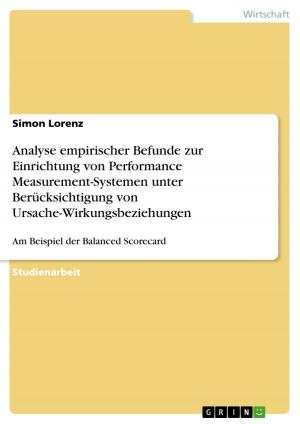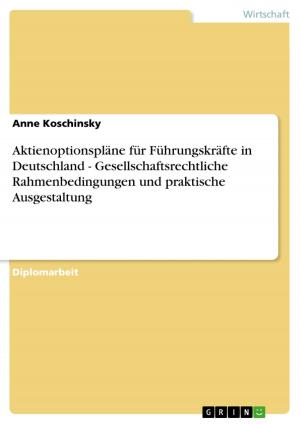The Doha Round
Problem Analysis and Proposals from the Perspective of Germany as a Member of the European Union
Business & Finance| Author: | Sebastian Walter | ISBN: | 9783640472932 |
| Publisher: | GRIN Verlag | Publication: | November 16, 2009 |
| Imprint: | GRIN Verlag | Language: | English |
| Author: | Sebastian Walter |
| ISBN: | 9783640472932 |
| Publisher: | GRIN Verlag |
| Publication: | November 16, 2009 |
| Imprint: | GRIN Verlag |
| Language: | English |
Scientific Essay from the year 2009 in the subject Business economics - General, grade: A+, University of Auckland, language: English, abstract: The World Trade Organization's (WTO) Doha Round was established in 2001 as the new multilateral negotiation round, the first one of the still young WTO. The members agreed to set a sign for market economy and development, not at last to undermine terrorism. Different from the preceding Uruguay Round, initially scheduled on four but stretching over seven years, the negotiations this time should last three years and reach consensus by the end of 2004. Almost five years later the Doha Round could be closer to its exodus that its consensus. This paper aims to provide an understanding of central impediments to the Doha negations as well as proposals how to move towards a consensus on major subjects, in particular from the perspective of Germany as a member of the European Union. For this purpose, the background information provided will introduce sections of the Doha Declaration relevant to later discussions. International trade theory, especially comparative advantage theory and protectionism, provide the foundations for the analysis section. The starting point of the analysis is a brief overview of Germany's economy and the Common Agricultural Policy (CAP) imposed by the European Community (EC) as well as Germany's interests in the Doha negotiations. The second part of the analysis discusses four major impediments to the success of the Doha Round at present: Political interests, protectionism of developing countries, implementation-related issues, and WTO-principles. The paper concludes with suggestions that address the four impediments mentioned and provides a general idea how to restructure the negotiations in order to improve efficiency.
Scientific Essay from the year 2009 in the subject Business economics - General, grade: A+, University of Auckland, language: English, abstract: The World Trade Organization's (WTO) Doha Round was established in 2001 as the new multilateral negotiation round, the first one of the still young WTO. The members agreed to set a sign for market economy and development, not at last to undermine terrorism. Different from the preceding Uruguay Round, initially scheduled on four but stretching over seven years, the negotiations this time should last three years and reach consensus by the end of 2004. Almost five years later the Doha Round could be closer to its exodus that its consensus. This paper aims to provide an understanding of central impediments to the Doha negations as well as proposals how to move towards a consensus on major subjects, in particular from the perspective of Germany as a member of the European Union. For this purpose, the background information provided will introduce sections of the Doha Declaration relevant to later discussions. International trade theory, especially comparative advantage theory and protectionism, provide the foundations for the analysis section. The starting point of the analysis is a brief overview of Germany's economy and the Common Agricultural Policy (CAP) imposed by the European Community (EC) as well as Germany's interests in the Doha negotiations. The second part of the analysis discusses four major impediments to the success of the Doha Round at present: Political interests, protectionism of developing countries, implementation-related issues, and WTO-principles. The paper concludes with suggestions that address the four impediments mentioned and provides a general idea how to restructure the negotiations in order to improve efficiency.















